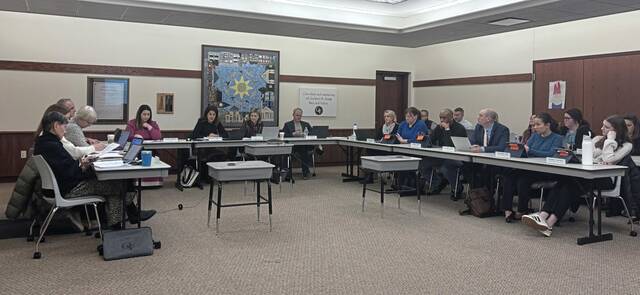In Pennsylvania , A Cyber Charter School Builds A Real Estate Empire

Pennsylvania cyber charters are stockpiling wealth
A new report shows Pennsylvania’s cyber charter schools amassing a large stockpile of assets. The Education Voters of PA report shows that the four largest cyber charter schools in Pennsylvania in 2018 had net assets and fund balances totaling $566,858; in 2022, that total had grown to $486 million.
Cyber charter schools, like brick and mortar charter schools, are privately owned and operated but taxpayer funded. Cyber charters provide online education, the kind of distance learning that was maligned by some post-pandemic. That on line nature might lead one to expect that cyber-charters can be operated for a lower cost per pupil than brick and mortar schools.
But in Pennsylvania, the cost per pupil in cyber schools is tied to the cost per pupil of the student’s public school. This means cyber students in Pennsylvania may bring wildly varying amounts of payment to the same cyber school. It also appears to mean that Pennsylvania cyber school operators have plenty of extra funds to use.
Previous studies by Ed Voters of PA have shown that many of those taxpayer dollars fund marketing for the cyber schools. An Education Week study in 2017 found that two of the cyber giants were spending heavily on lobbying, with lobbyists for K12 (now Stride) spending more money in Pennsylvania than in any other state. Ed Voters’ new study, based on 1800 pages of invoices acquired through Right To Know requests, shows that in 2022-2023, 11 of Pennsylvania’s cyber charters spent over $21 million on advertising and gift cards.
Over $8 million of that was spent by the state’s largest cyber charter operator, Commonwealth Charter Academy. The study also reveals the extent of CCA’s real estate holdings.
The report claims that CCA has spent a total of $88.7 million for 35 locations that it now owns; 29 of those have been purchased since 2018. The properties have assessed values totaling $43.1 million.
The properties are spread across the state. Several are lots that are or could be for parking, including several lots in Johnstown. CCA purchased a parking lot in Homestead for $2 million (assessed value, $1.2 million).
In 2016, CCA bought the former PA State Employee Credit Union headquarters in Harrisburg for $5 million.
In 2021, CCA bought the former Macy’s at the Waterfront shopping complex in Homestead, with a whopping 140,000 square feet of office space. Said Commonwealth Charter Academy CEO Thomas Longenecker, “During the last few years, we’ve created a complete business ecosystem at The Waterfront. This strategic purchase was the natural step as we continue to expand our operations.”
In Moosic, CCA purchased the former Cigna building for $17,788,381 (the previous owners had the assessed value dropped to under $300K. In Dubois, CCA is planning to build an office complex on the vacant lot they purchased.
Why is so much real estate needed for a school that students do not physically attend?
Tim Eller, senior vice president of outreach and government relations for Commonwealth Charter Academy, said the properties “serve a variety of purposes, including work locations for staff; student state testing sites; student and family meetings with teachers, counselors, and administrators; student field trips; career and post-graduation planning; and enrollment as well as being open to members of the community for events and meetings for their local groups” according to Maddie Hanna, reporting for the Philadelphia Inquirer. (Eller was invited to offer further comments for this story but has not responded.)
Though the real estate holdings are paid for with taxpayer dollars that the school collects, nothing in Pennsylvania law indicates that CCA would be required to return those funds to the taxpayers if they sold the properties. Once the holdings are purchased by CCA, they go off the local tax rolls, making a loss of income for local school districts.
link





